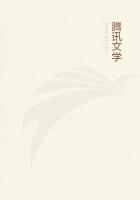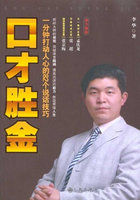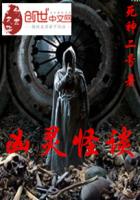The night had passed.
Far and near the garden view looked its gayest and brightest in the light of the noonday sun. The cheering sounds which tell of life and action were audible all round the villa. From the garden of the nearest house rose the voices of children at play. Along the road at the back sounded the roll of wheels, as carts and carriages passed at intervals. Out on the blue sea, the distant splash of the paddles, the distant thump of the engines, told from time to time of the passage of steamers, entering or leaving the strait between the island and the mainland. In the trees, the birds sang gayly among the rustling leaves. In the house, the women-servants were laughing over some jest or story that cheered them at their work. It was a lively and pleasant time--a bright, enjoyable day.
The two ladies were out together; resting on a garden seat, after a walk round the grounds.
They exchanged a few trivial words relating to the beauty of the day, and then said no more. Possessing the same consciousness of what she had seen in the trance which persons in general possess of what they have seen in a dream--believing in the vision as a supernatural revelation--Clara's worst forebodings were now, to her mind, realized as truths. Her last faint hope of ever seeing Frank again was now at an end. Intimate experience of her told Mrs. Crayford what was passing in Clara's mind, and warned her that the attempt to reason and remonstrate would be little better than a voluntary waste of words and time. The disposition which she had herself felt on the previous night, to attach a superstitious importance to the words that Clara had spoken in the trance, had vanished with the return of the morning. Rest and reflection had quieted her mind, and had restored the composing influence of her sober sense. Sympathizing with Clara in all besides, she had no sympathy, as they sat together in the pleasant sunshine, with Clara's gloomy despair of the future.
She, who could still hope, had nothing to say to the sad companion who had done with hope. So the quiet minutes succeeded each other, and the two friends sat side by side in silence.
An hour passed, and the gate-bell of the villa rang.
They both started--they both knew the ring. It was the hour when the postman brought their newspapers from London. In past days, what hundreds on hundreds of times they had torn off the cover which inclosed the newspaper, and looked at the same column with the same weary mingling of hope and despair! There to-day--as it was yesterday; as it would be, if they lived, to-morrow--there was the servant with Lucy's newspaper and Clara's newspaper in his hand!
Would both of them do again to-day what both had done so often in the days that were gone?
No! Mrs. Crayford removed the cover from her newspaper as usual.
Clara laid _her_ newspaper aside, unopened, on the garden seat.
In silence, Mrs. Crayford looked, where she always looked, at the column devoted to the Latest Intelligence from foreign parts. The instant her eye fell on the page she started with a loud cry of joy. The newspaper fell from her trembling hand. She caught Clara in her arms. "Oh, my darling! my darling! news of them at last."
Without answering, without the slightest change in look or manner, Clara took the newspaper from the ground, and read the top line in the column, printed in capital letters:
THE ARCTIC EXPEDITION.
She waited, and looked at Mrs. Crayford.
"Can you bear to hear it, Lucy," she asked, "if I read it aloud?"
Mrs. Crayford was too agitated to answer in words. She signed impatiently to Clara to go on.
Clara read the news which followed the heading in capital letters. Thus it ran:
"The following intelligence, from St. Johns, Newfoundland, has reached us for publication. The whaling-vessel _Blythew ood_ is reported to have met with the surviving officers and men of the Expedition in Davis Strait. Many are stated to be dead, and some are supposed to be missing. The list of the saved, as collected by the people of the whaler, is not vouched for as being absolutely correct, the circumstances having been adverse to investigation. The vessel was pressed for time; and the members of the Expedition, all more or less suffering from exhaustion, were not in a position to give the necessary assistance to inquiry. Further particulars may be looked for by the next mail."















